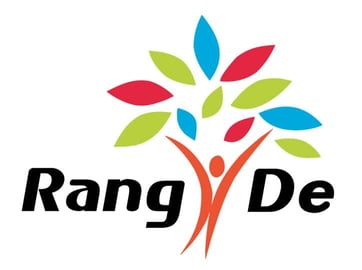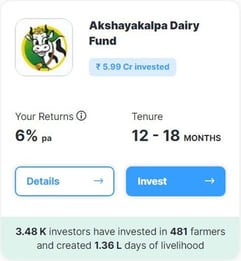
Our experts and industry insiders blog the latest news, studies and current events from inside the credit card industry. Our articles follow strict editorial guidelines.
In a Nutshell: Access to affordable financing can be vital to a business’s growth. Rang De connects entrepreneurs with social investors that can provide them with credit. Rang De allows social investors to support underserved entrepreneurs while earning a return on their investment. The company helps borrowers build their credit scores to position them for relationships with formal financial institutions
In the 1970s, Muhammad Yunus, a Bangladesh economist, noticed Bangladeshi entrepreneurs had difficulty securing business loans from established financial institutions. Yunus developed solutions that enabled people who struggled to obtain credit from formal financial institutions to access money from other sources, including peer lenders. Yunus’s work in the microfinance space earned him a Nobel Peace Prize in 2006.
Smita Ram and Ram NK were a married couple living and working in the UK in the early 2000s. Originally from India, the couple had always dreamed of returning home to work toward alleviating the country’s poverty.
Yunus’s work in Bangladesh inspired Ram and Smita. The couple felt that, much like people in Bangladesh, India’s population faced similar challenges accessing credit. Although India had high poverty rates at the time, Ram and Smita knew that India’s citizens were hardworking and needed access to affordable credit from an organized source.

Ram and Smita started Rang De to provide Indians with credit solutions to help them advance their business operations. We spoke with Venance Roche, Rang De’s Vice President of Marketing and Growth, to learn more about the company’s innovative approach to lending in India.
Roche said Rang De operated as a nonprofit for the first 10 years of its operations. In September 2019, the company relaunched as a non-banking financial company with a peer-to-peer lending license to comply with new regulations established by India’s central banking authority. Its mission remained the same — to revolutionize credit access. Rang De makes credit affordable to low-income communities. Roche said 86% of eligible Indians don’t have access to formal credit.
Compounding the problem is that many Indians don’t have assets they can use as collateral for a loan. Roche said that many Indians needing a loan turn to informal sources, such as a friend or family member.
“Banks are not giving people credit because borrowers haven’t had the chance to establish and grow credit scores,” Roche said. “But they can’t grow their credit scores if they’re not given the chance to do so.”
Earning Returns While Improving Livelihoods
Rang De employs a peer-to-peer lending model that allows Indians with disposable incomes to offer loans to underserved borrowers. Roche said Indians can invest their money in other financial instruments that may yield higher returns, but investors who lend through Rang De earn financial returns while helping borrowers create a better life for themselves and their families.
“When someone is able to launch or grow a business sustainably, you’re not just helping that entrepreneur,” Roche said. “You’re helping their family, their community, and the village they come from.”

More than 9,000 social investors use Rang De’s peer-to-peer lending services. Social investors can choose who to lend their money to on Rang De’s platform. Roche said some investors choose to support women entrepreneurs, businesses from a particular region, or individuals working within a specific profession.
Investors receive interest when borrowers repay their loans. Rang De’s lenders earn a return on their investment of 4% to 8% annually. Roche said many social investors reinvest the proceeds from their investment with another entrepreneur.
“The group of social investors we work with are a very active community,” Roche said. “Whenever we announce an offline meeting, people come together to offer us support and learn how they can help us advance our mission further.”
Rang De helps borrowers improve their financial standing by building and growing their credit scores. Roche said many borrowers who access credit through Rang De are receiving a formal loan for the first time in their lives. When a borrower repays a loan, Rang De submits their information to the credit bureaus.
“There have been instances where a borrower’s involvement in our program causes a bank to realize that the borrower is capable of repaying a loan,” Roche said. “The bank will then offer credit products directly to the borrower. That’s a big win for us.”
Impact Partners Match Borrowers with Rang De
Borrowers interested in securing a loan through Rang De work with impact partners in their communities. Impact partners are nonprofit organizations that have worked in India for decades to support local communities and assist them with their business efforts. Roche said impact partners help farmers manage their business by educating and assisting them in securing a better price for their produce..

Rang De’s process for evaluating potential loan recipients relies on impact partners. Rang De’s impact partners provide the company with information about entrepreneurs seeking business loans. Rang De then sends a team to the entrepreneurs’ communities to better understand how business owners live and conduct their business. Rang De also assesses what type of loan would best serve the entrepreneur.
“Impact partners play a very important role because they are the ones who actually bring us closer to India’s entrepreneurs who need financing,” Roche said. “Our impact partners pay us a fee because we provide them a service that benefits their communities.”
Rang De is committed to bolstering India’s financial well-being, exemplified through the financial literacy programs the company runs throughout the country. Roche said people in some communities don’t understand what credit is and what types of loan products exist. Rang De’s impact partners assist the company in identifying areas to target for financial education.
“Many Indian people’s awareness of the credit system and how it works is low,” Roche said. “But the thing is, they need access to credit for their survival.”
Social Investors Boost Community Growth
Social investors can sign up to participate in Rang De’s program on the company’s website or mobile app. Roche said investors can begin their relationship with Rang De by investing a small amount of money.
“We’ve kept the barrier to entry really low,” Roche explained. “We want more people to invest and experience the process so that they will gain confidence and want to invest again and again.”
Roche said most of Rang De’s loans have a six-to-18-month duration. Repayment terms differ by community, but Roche said borrowers make repayments monthly, quarterly, or semiannually. The structure of a borrower’s repayment terms depends on the borrower’s profession and how often they receive income.
Rang De has provided more than 20,000 loans to borrowers since September 2019. Roche said approximately 13,000 of those loans were to women borrowers, and roughly half of those women were first-time borrowers.
“Access to credit has been a challenge for women in India, particularly those from low-income communities,” Roche said. “It’s very empowering for a woman to take charge of their finances and build a credit score.”
Rang De is committed to growing its base of social investors. Roche said the company needs more investors because India has many citizens without access to traditional lending services.
“More borrowers and social impact partners are reaching out to us all the time,” Roche said. “We need many more social investors to join us and see the change that they can make.”
Social investors must have an Indian bank account to invest with Rang De. Regardless of where they reside, they must be either an Indian citizen or an overseas citizen of India.
“Our social investors can be based anywhere in the world,” Roche said. “Rang De has social investors who live in the U.S., Europe, and the Middle East. Wherever you live, it’s a great platform to give yourself the chance to exercise empathy.”


![5 Unsecured Loans for Bad Credit Borrowers ([updated_month_year]) 5 Unsecured Loans for Bad Credit Borrowers ([updated_month_year])](https://www.cardrates.com/images/uploads/2020/02/Unsecured-Loans-for-Bad-Credit.jpg?width=158&height=120&fit=crop)

![3 Best Credit Card Loans for Bad Credit ([updated_month_year]) 3 Best Credit Card Loans for Bad Credit ([updated_month_year])](https://www.cardrates.com/images/uploads/2018/03/loans.png?width=158&height=120&fit=crop)
![7 Best Loans & Credit Cards: 600-650 Score ([updated_month_year]) 7 Best Loans & Credit Cards: 600-650 Score ([updated_month_year])](https://www.cardrates.com/images/uploads/2018/07/650.png?width=158&height=120&fit=crop)
![7 Emergency Loans For Bad Credit ([updated_month_year]) 7 Emergency Loans For Bad Credit ([updated_month_year])](https://www.cardrates.com/images/uploads/2021/05/Emergency-Loans-For-Bad-Credit.jpg?width=158&height=120&fit=crop)
![8 Best Home Improvement & Repair Loans ([updated_month_year]) 8 Best Home Improvement & Repair Loans ([updated_month_year])](https://www.cardrates.com/images/uploads/2021/09/Best-Home-Improvement-Repair-Loans.jpg?width=158&height=120&fit=crop)
![5 Best Auto Loans For Students ([updated_month_year]) 5 Best Auto Loans For Students ([updated_month_year])](https://www.cardrates.com/images/uploads/2023/01/Auto-Loans-For-Students.jpg?width=158&height=120&fit=crop)
![5 Auto Loans For Fair Credit ([updated_month_year]) 5 Auto Loans For Fair Credit ([updated_month_year])](https://www.cardrates.com/images/uploads/2023/02/Auto-Loans-For-Fair-Credit-5.jpg?width=158&height=120&fit=crop)